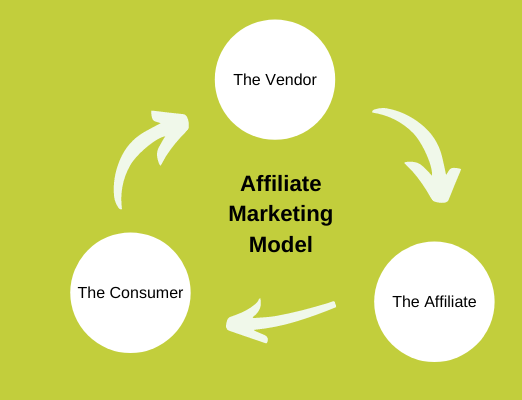Welcome to our comprehensive guide on building a highly effective affiliate marketing website. In this article, we will delve into the key strategies and techniques that can help you outperform other websites and establish a strong online presence. Whether you’re a beginner or an experienced marketer, this guide will provide you with valuable insights and actionable steps to create a successful affiliate marketing website.

How to Build an Exceptional Affiliate Marketing Website
Understanding the Power of Affiliate Marketing
Affiliate marketing has emerged as one of the most lucrative online business models. By promoting products or services on your website and earning a commission for each sale or lead generated, you can tap into a vast array of opportunities to monetize your online presence. To ensure your affiliate marketing website stands out from the crowd, follow the steps outlined below.

Step 1: Define Your Target Audience
Before diving into the technical aspects, it’s crucial to understand your target audience and their needs. Conduct thorough market research to identify your ideal customers, their interests, pain points, and preferences. This knowledge will enable you to tailor your content, products, and promotions to resonate with your audience effectively.
Step 2: Conduct Keyword Research
Keyword research is a cornerstone of successful SEO. It allows you to identify relevant keywords and phrases that your target audience uses when searching for products or information online. Utilize powerful keyword research tools, such as SEMrush or Ahrefs, to uncover high-volume, low-competition keywords that align with your niche.
Step 3: Craft Compelling and Engaging Content
Content is king when it comes to both user engagement and search engine rankings. To outrank other websites, create high-quality, original content that provides genuine value to your audience. Ensure your articles are well-researched, comprehensive, and address the pain points and interests of your target audience.
Remember to incorporate your target keywords naturally throughout your content while maintaining a conversational and engaging tone. This helps search engines understand the relevance of your content and improves your chances of ranking higher in search results.
Step 4: Optimize On-Page Elements
To enhance the visibility of your affiliate marketing website, optimize crucial on-page elements. This includes optimizing your title tags, meta descriptions, headings (H1, H2, H3, etc.), and URL structure. Incorporate your target keywords strategically within these elements, while ensuring they remain relevant and compelling to users.
Furthermore, improve the user experience by utilizing responsive web design, optimizing page loading speed, and ensuring your website is mobile-friendly. These factors play a significant role in both user satisfaction and search engine rankings.
Step 5: Build High-Quality Backlinks
Backlinks are a vital factor in determining your website’s authority and credibility. Focus on acquiring high-quality backlinks from reputable and relevant websites within your industry. This can be achieved through guest posting, influencer outreach, content partnerships, and creating compelling, shareable content that naturally attracts backlinks.
Step 6: Leverage the Power of Social Media
In today’s digital landscape, social media platforms are essential for expanding your online reach and driving traffic to your website. Identify the social media channels that align with your target audience and actively engage with your followers. Share your content, interact with users, and leverage the power of social media advertising to amplify your affiliate marketing efforts.
Step 7: Analyze and Optimize
Regularly analyze your website’s performance using web analytics tools like Google Analytics. Monitor your organic search rankings, user engagement metrics, and conversion rates. Identify areas for improvement and optimize your content, user experience, and promotional strategies accordingly.
Remember, SEO is an ongoing process that requires continuous monitoring, adaptation, and improvement. Stay updated with the latest industry trends and algorithm changes to maintain a competitive edge.
Frequently Asked Questions:
Q: How do I create a high quality affiliate website?
A: Creating a high-quality affiliate website involves several key steps. Here’s a guide to help you get started:
Choose a Niche: Select a specific niche that you are passionate about or have expertise in. This will allow you to provide valuable content to your audience and establish yourself as an authority in that area.
Research Affiliate Programs: Identify affiliate programs that align with your chosen niche. Look for programs that offer competitive commission rates, high-quality products or services, and reliable tracking and payment systems. Popular affiliate networks like Amazon Associates, ShareASale, and CJ Affiliate can provide a wide range of options.
Build a Professional Website: Invest in a good domain name that reflects your niche and is easy to remember. Select a reliable hosting provider to ensure your website is fast and accessible. Use a user-friendly content management system (CMS) like WordPress to build your site and choose a professional theme that suits your niche.
Content Creation: Create high-quality, valuable content that resonates with your target audience. This can include product reviews, tutorials, comparisons, buying guides, or informative articles related to your niche. Optimize your content for search engines by incorporating relevant keywords and providing well-structured, engaging content.
SEO Optimization: Implement on-page and off-page SEO strategies to improve your website’s visibility in search engine results. This includes optimizing meta tags, using descriptive URLs, interlinking relevant content, and building quality backlinks from reputable websites in your niche.
Disclose Affiliate Links: It’s essential to be transparent with your audience about your affiliate relationships. Clearly disclose affiliate links on your website, either through a disclosure statement or individual disclaimers within your content. This helps build trust with your audience and ensures compliance with legal requirements.
Build an Email List: Offer your visitors an incentive, such as a free ebook or exclusive content, in exchange for their email addresses. This allows you to build a mailing list and engage with your audience regularly through newsletters or promotional offers, increasing the chances of generating affiliate sales.
Promote Your Website: Implement a comprehensive marketing strategy to drive traffic to your site. This can include social media promotion, guest blogging, influencer collaborations, pay-per-click advertising, or content promotion through relevant online communities.
Track and Analyze: Utilize analytics tools like Google Analytics to monitor your website’s performance. Track metrics such as traffic sources, page views, conversion rates, and affiliate sales. Analyze this data to identify areas for improvement and refine your strategies accordingly.
Provide Value and Engage: Continuously provide valuable content to your audience and engage with them through comments, social media, or email. Building a loyal community around your website will not only drive traffic but also increase the likelihood of conversions.
Remember, building a successful affiliate website takes time and effort. Consistency, quality content, and a user-centric approach will help you establish credibility, grow your audience, and generate affiliate sales over time.
Q: How much does it cost to build an affiliate website?
A: The cost of building an affiliate website can vary depending on several factors, including the complexity of the website, the design and functionality requirements, and the resources you choose to invest in. Here are some cost considerations:
Domain Name: The cost of a domain name typically ranges from $10 to $50 (800 to 4000 rupees) per year, depending on the domain registrar and the popularity of the domain extension (.com, .net, etc.). Premium domain names or those in high-demand niches can be more expensive.
Hosting: The cost of web hosting varies based on the hosting provider, the type of hosting (shared, VPS, dedicated, etc.), and the hosting package you choose. Basic shared hosting plans can start at around $3 to $10 per month, while more advanced options may range from $20 to $100 per month or more.
Content Management System (CMS): Many popular CMS platforms like WordPress are free to use. However, you may need to invest in premium themes or plugins to enhance the design and functionality of your website. Premium themes can range from $30 to $100 or more, while plugins can vary in cost depending on their features and developers.
Website Design and Development: If you have web design and development skills, you can create your affiliate website yourself, reducing costs. However, if you prefer professional assistance, hiring a web designer or developer can range from a few hundred dollars to several thousand dollars, depending on the complexity of the project and the expertise of the professional.
Content Creation: The cost of content creation can vary depending on whether you create the content yourself, hire freelance writers, or work with a content agency. Freelance writing rates can range from $0.05 to $0.50 or more per word, depending on the writer’s experience and the complexity of the content.
SEO and Marketing: Investing in search engine optimization (SEO) tools, keyword research tools, and marketing strategies such as paid advertising or content promotion can add to the overall cost. The budget for SEO and marketing activities can vary widely depending on your goals and the competitiveness of your niche.
Remember that these are just general cost considerations, and the actual cost of building an affiliate website can vary significantly depending on your specific requirements and choices. It’s important to plan your budget accordingly and prioritize investments based on your goals and available resources.
Q: Which niche is best for affiliate marketing?
A: Choosing the best niche for affiliate marketing depends on various factors, including your interests, expertise, target audience, and profitability. While there is no one-size-fits-all answer, here are some popular and potentially profitable niches for affiliate marketing:
Health and Wellness: This niche encompasses a wide range of sub-niches such as fitness, weight loss, nutrition, mental health, alternative medicine, and more. With the growing interest in personal well-being, there are numerous opportunities for promoting health-related products, supplements, fitness equipment, and wellness programs.
Personal Finance: The personal finance niche focuses on helping individuals manage their money, save, invest, and achieve financial independence. Affiliate marketers can promote financial tools, investment platforms, credit cards, budgeting apps, and educational resources in this niche.
Beauty and Skincare: The beauty and skincare industry is highly popular and offers a wide range of products and brands to promote. Affiliates can target specific sub-niches like organic skincare, anti-aging products, makeup tutorials, hair care, or men’s grooming.
Technology and Gadgets: This niche covers a broad range of products such as smartphones, laptops, smart home devices, gaming consoles, and other tech gadgets. Affiliates can review and recommend these products, write tutorials, or provide informative content related to the latest technology trends.
Home and Kitchen Appliances: With the increasing interest in home improvement, eco-friendly products, and kitchen gadgets, this niche offers opportunities to promote appliances, cookware, home decor, organization tools, and DIY home improvement products.
Fashion and Clothing: The fashion niche is evergreen and encompasses clothing, accessories, footwear, and jewelry. You can focus on specific sub-niches like sustainable fashion, plus-size fashion, or men’s/women’s fashion.
Travel: Travel-related niches like adventure travel, budget travel, family travel, or luxury travel have a dedicated audience. You can promote travel gear, luggage, accommodation options, booking platforms, or travel insurance.
DIY and Crafts: This niche appeals to a creative audience interested in DIY projects, crafts, knitting, sewing, or woodworking. Affiliates can promote tools, craft supplies, online courses, and instructional materials.
When selecting a niche, consider your own interests and knowledge to ensure you can create valuable content. Additionally, research the market demand, competition, and potential profitability of the niche. Conduct keyword research to understand search volume and competition levels for relevant topics within your chosen niche.
Remember that success in affiliate marketing depends on providing value to your audience and building trust. Choose a niche that aligns with your passion and expertise, allowing you to create engaging and informative content that resonates with your target audience.
Q: What kind of website should I make for affiliate marketing?
A: When it comes to creating a website for affiliate marketing, there are different types you can consider based on your niche, target audience, and content strategy. Here are some common types of websites that work well for affiliate marketing:
Product Review Website: This type of website focuses on providing in-depth reviews and analysis of various products within your niche. You can create detailed reviews highlighting the features, pros and cons, and personal experiences with the products. Include affiliate links within your reviews to direct visitors to purchase the products.
Niche Authority Website: An authority website aims to establish you as an expert or authority in a specific niche. It involves creating high-quality, informative content that educates and helps your audience. You can cover various topics, provide guides, tutorials, tips, and advice. Incorporate affiliate links naturally within your content or in dedicated recommendation sections.
Comparison Website: A comparison website helps users compare different products or services side by side. You can create detailed tables or charts highlighting the features, specifications, pricing, and benefits of each option. Include affiliate links to the products being compared, allowing visitors to make a purchase decision easily.
Coupon or Deal Website: This type of website focuses on sharing the latest deals, discounts, and coupons for various products or services. You can curate and share the best offers available, helping your audience save money. Include affiliate links that lead to the merchant’s website with the discounted prices or coupon codes.
Blog or Content Website: A blog or content-based website allows you to create a wide range of content, including articles, guides, how-to’s, and informative posts within your niche. You can incorporate affiliate links naturally within your content or in related product recommendation sections.
Comparison Shopping Website: This type of website aggregates product listings and prices from different online retailers to help users compare prices and find the best deals. You can earn affiliate commissions by redirecting visitors to the respective retailers when they click on product listings.
Community or Forum Website: A community or forum website focuses on building an engaged community around a specific topic or niche. Users can interact, ask questions, share experiences, and seek advice. You can incorporate affiliate links within relevant discussions or recommendation sections.
Remember, the type of website you choose should align with your niche, target audience, and content strategy. It’s important to create a user-friendly and visually appealing website design, optimize your site for search engines, and provide valuable content to your audience. Focus on building trust, establishing yourself as an authority, and delivering a positive user experience.
Q: Are affiliate websites profitable?
A: Affiliate websites have the potential to be profitable, but success and profitability depend on various factors. Here are some key factors that can influence the profitability of an affiliate website:
Niche Selection: Choosing a profitable niche is crucial. Some niches have higher demand and offer more opportunities for affiliate sales. Niches like health and wellness, technology, personal finance, and beauty often have a wide range of products and a large audience, making them potentially more profitable.
Quality Content: Providing high-quality, valuable content is essential for attracting and retaining an audience. Engaging and informative content helps build trust and credibility with your visitors, increasing the chances of them clicking on your affiliate links and making a purchase.
Targeted Traffic: Generating targeted traffic to your website is vital. You need to attract visitors who are genuinely interested in the products or services you are promoting. Utilizing effective SEO strategies, social media marketing, content promotion, and other traffic generation techniques can help drive qualified traffic to your site.
Affiliate Program Selection: Choosing reputable and reliable affiliate programs is crucial. Look for programs that offer competitive commission rates, a good selection of products, accurate tracking, and timely payments. Research and compare different affiliate programs to find the ones that align with your niche and provide the best earning potential.
Conversion Optimization: Optimizing your website for conversions can significantly impact profitability. This involves strategically placing affiliate links, using compelling calls-to-action, creating clear and persuasive product descriptions, and providing a seamless user experience throughout the purchase process.
Building Trust: Building trust with your audience is key to success. Being transparent about your affiliate relationships, providing honest and unbiased reviews, and only promoting products that you genuinely believe in can help establish trust with your visitors. Trust leads to higher conversion rates and repeat visitors.
Monetization Strategies: While affiliate marketing is the primary monetization method for most affiliate websites, diversifying your revenue streams can be beneficial. You can explore other monetization options such as display advertising, sponsored content, email marketing, or creating and selling your own digital products.
It’s important to note that building a profitable affiliate website takes time, effort, and consistent dedication. Success doesn’t happen overnight, and it requires ongoing optimization, adaptation to market trends, and staying updated with industry developments.
By focusing on providing value, understanding your audience, and implementing effective marketing strategies, affiliate websites have the potential to be profitable. However, individual results can vary, and it’s essential to have realistic expectations and a long-term mindset when it comes to building a profitable affiliate business.
Conclusion – Affiliate Marketing Website
In conclusion, building a successful affiliate marketing website requires a combination of strategic planning, high-quality content, and effective SEO techniques. By following the steps outlined in this guide, you can enhance your website’s visibility, outrank competitors, and attract a steady stream of targeted traffic.
Remember to always prioritize your target audience and provide them with valuable, informative, and engaging content. Conduct thorough keyword research to optimize your website for relevant search terms and phrases. Craft compelling articles that address your audience’s pain points and interests while incorporating keywords naturally.
Optimize your on-page elements, such as title tags, meta descriptions, and headings, to improve search engine visibility. Build high-quality backlinks from authoritative websites to boost your website’s authority and credibility. Leverage the power of social media to expand your reach and engage with your audience.
Regularly analyze your website’s performance using web analytics tools and make data-driven optimizations to improve user experience and conversion rates.
By implementing these strategies, you can establish an exceptional affiliate marketing website that not only outranks competitors but also provides value to your audience and generates sustainable income. Remember to stay updated with the latest SEO trends and adapt your strategies accordingly.
Happy building and good luck with your affiliate marketing journey!
